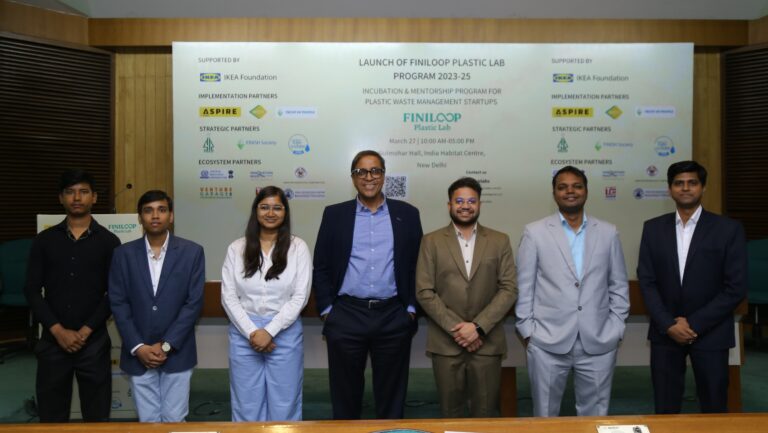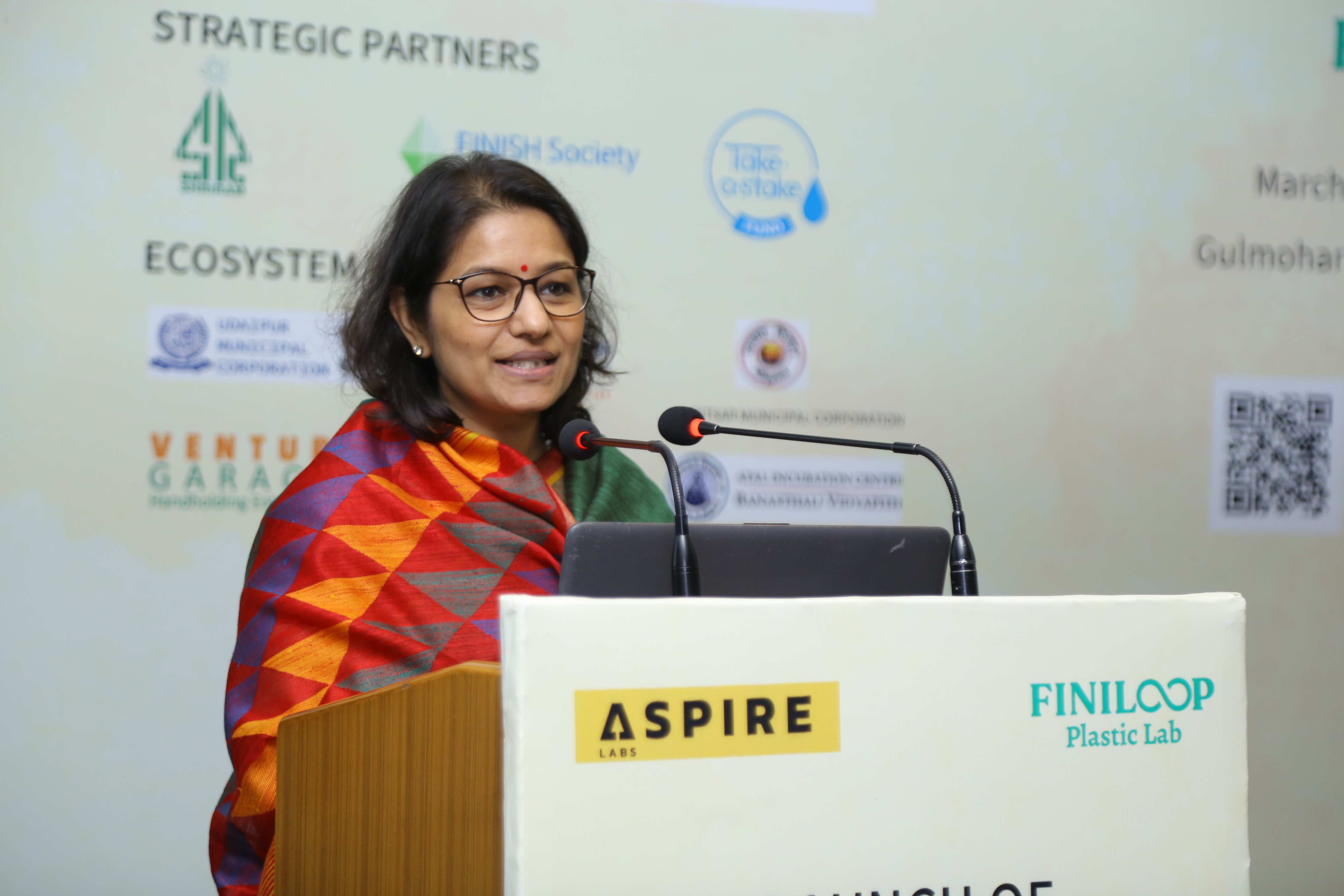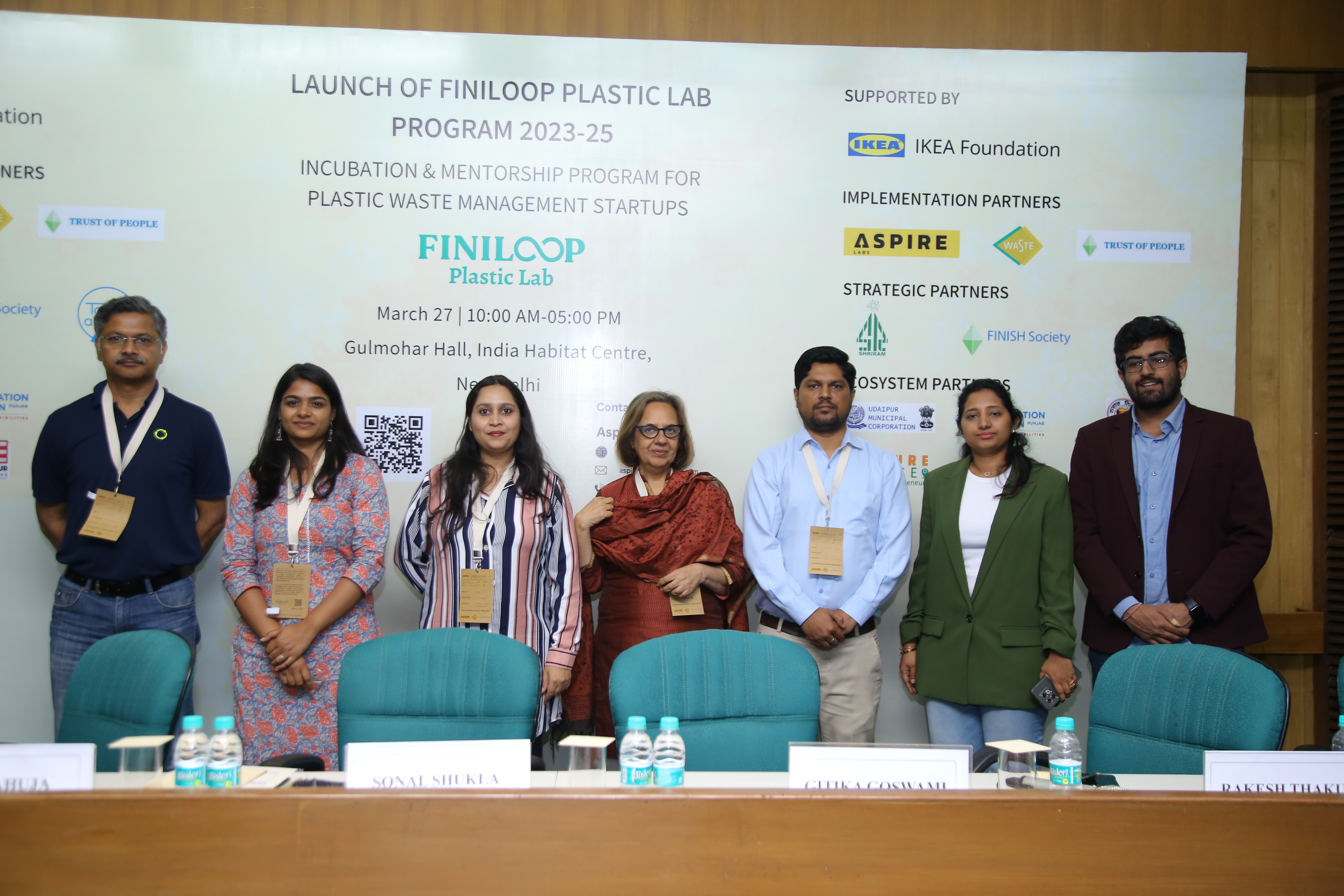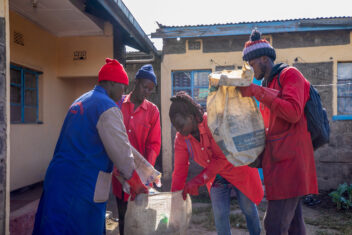Urgent need to reimagine how we use and dispose of plastic waste | FINILOOP Plastic Lab

Last month saw the Aspirelabs Accelerator team in Delhi, India, officially launch the FINILOOP Plastic Lab (FPL): a 14-month long incubation and mentorship programme designed to support plastic waste startups through fostering entrepreneurship and innovation.
The launch brought together representatives from technology institutes and development initiatives, policymakers, development organisations, waste management industry members, startups, academics, and the FINILOOP implementing partners (WASTE, TOP and Aspire Labs). All addressing the theme of Reimagine Plastic and the core topic Accelerating Plastic Circularity.
Aspirelabs is a part of the WASTE programme, FINILOOP (Financial Inclusion & Improved Livelihoods Out of Plastics). A programme designed to achieve plastic waste free cities in India through improving solid and plastic waste management while strengthening the livelihood opportunities of informal waste workers and fostering innovation for plastic waste processing and recycling enterprises.
Facing the plastic waste crisis together
The day kicked off with a picture painted of the sheer scale of the global plastic waste crisis, and the need to find a solution to how to sustainably manage plastic waste in India:
“There are an estimated five million pieces of plastic in the ocean, and this is growing every day… there is an urgent need to reimagine how we use and dispose of plastic waste.” – Mr. Kapil Agarwal, Manager Aspirelabs
It was agreed that at the heart of this reimagining there should be a focus on employing circular economy concepts, investment in innovation and bringing value to waste. An approach which must be taken in collaboration.
“Has to be a people’s movement with everyone’s cooperation… The producer, the consumer, the government. Everyone must come together.” – Mr. C K Mishra, Former Secretary, MoEFCC, Govt. of India.
From policy to livelihoods
A focus was also placed on how important it is to build government capacity and knowledge at both the national and local urban level and connect ministries. Some key examples of the impact this can have on informal waste workers was illustrated by Ms. Saloni Goel, Head of Circular Economy and Plastic Waste Management at UNDP India:
“Gradually getting ministries to understand that a sanitation worker is not a waste worker and the programmes that are available for sanitation workers do not necessarily mean that waste workers will benefit.”

Startups as part of the solution
The FPL recognises that startups are also key actors in finding a shared solution to the plastic waste crisis and is aiming to help establish and scale up 25 plastic waste management startups from across the country. Those selected will have the opportunity to become part of the FINILOOP programme in the cities of Amritsar and Udaipur.
During the event, those attending had the chance to hear from selected startups that have been active in solid waste and plastic management. The impact and innovation on display was inspiring, with startups ranging from E-Conscious turning plastic waste into public fixtures, such as bins and benches, to ScrapUncle providing an app for on demand scrap pick up and sale of scrap.

Overcoming challenges
Through a panel discussion, startups were also given a platform to share the challenges they face which included, for example, limited investment in the waste management sector, difficulty in obtaining regular supply of singular material streams of good uncontaminated quality, isolation from one another and lack of industry specific learning.
All challenges which the FPL is helping startups to overcome through providing high quality mentorship from experts, access to funding, industry connections and nine months of post programme support.
Working in partnership
FPL is supported by the IKEA Foundation and is being implemented by Aspirelabs, WASTE and Trust of People.
To find out more or apply to join the first FINILOOP Plastic Labs visit: www.aspirelabs.com/fpl/


